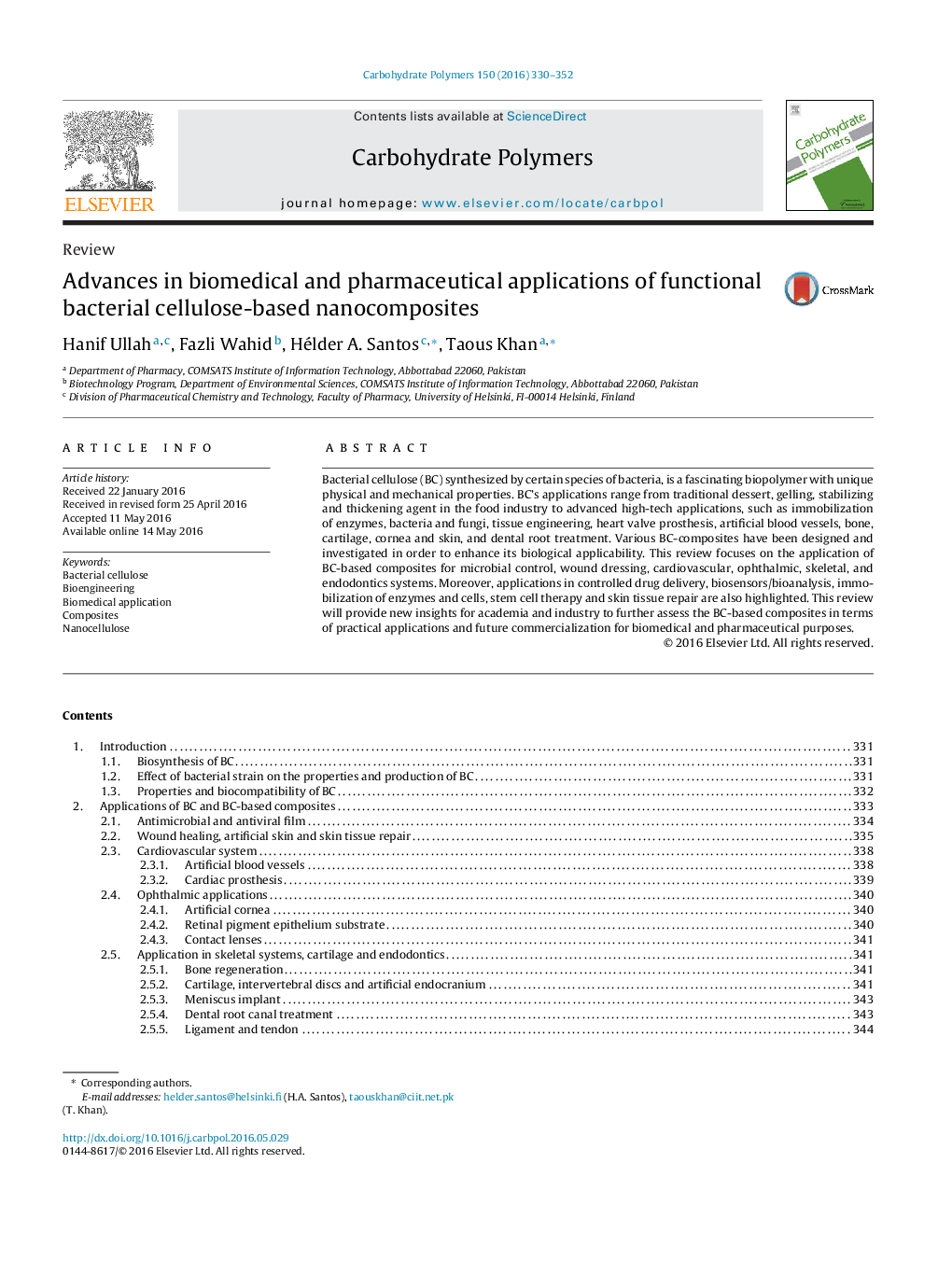| Article ID | Journal | Published Year | Pages | File Type |
|---|---|---|---|---|
| 1384844 | Carbohydrate Polymers | 2016 | 23 Pages |
•Summarizes various biomedical applications of BC-based nanocomposites.•Highlights recent advances of these nanocomposites in drug delivery.•Describes the potential of BC-nanocomposites for extensive uses in biosensors, bioanalyses, cell and enzymes immobilization, and stem cell therapy.•Enlightens some future prospects of BC-based nanocomposites in biomedical and pharmaceutical field.
Bacterial cellulose (BC) synthesized by certain species of bacteria, is a fascinating biopolymer with unique physical and mechanical properties. BC’s applications range from traditional dessert, gelling, stabilizing and thickening agent in the food industry to advanced high-tech applications, such as immobilization of enzymes, bacteria and fungi, tissue engineering, heart valve prosthesis, artificial blood vessels, bone, cartilage, cornea and skin, and dental root treatment. Various BC-composites have been designed and investigated in order to enhance its biological applicability. This review focuses on the application of BC-based composites for microbial control, wound dressing, cardiovascular, ophthalmic, skeletal, and endodontics systems. Moreover, applications in controlled drug delivery, biosensors/bioanalysis, immobilization of enzymes and cells, stem cell therapy and skin tissue repair are also highlighted. This review will provide new insights for academia and industry to further assess the BC-based composites in terms of practical applications and future commercialization for biomedical and pharmaceutical purposes.
